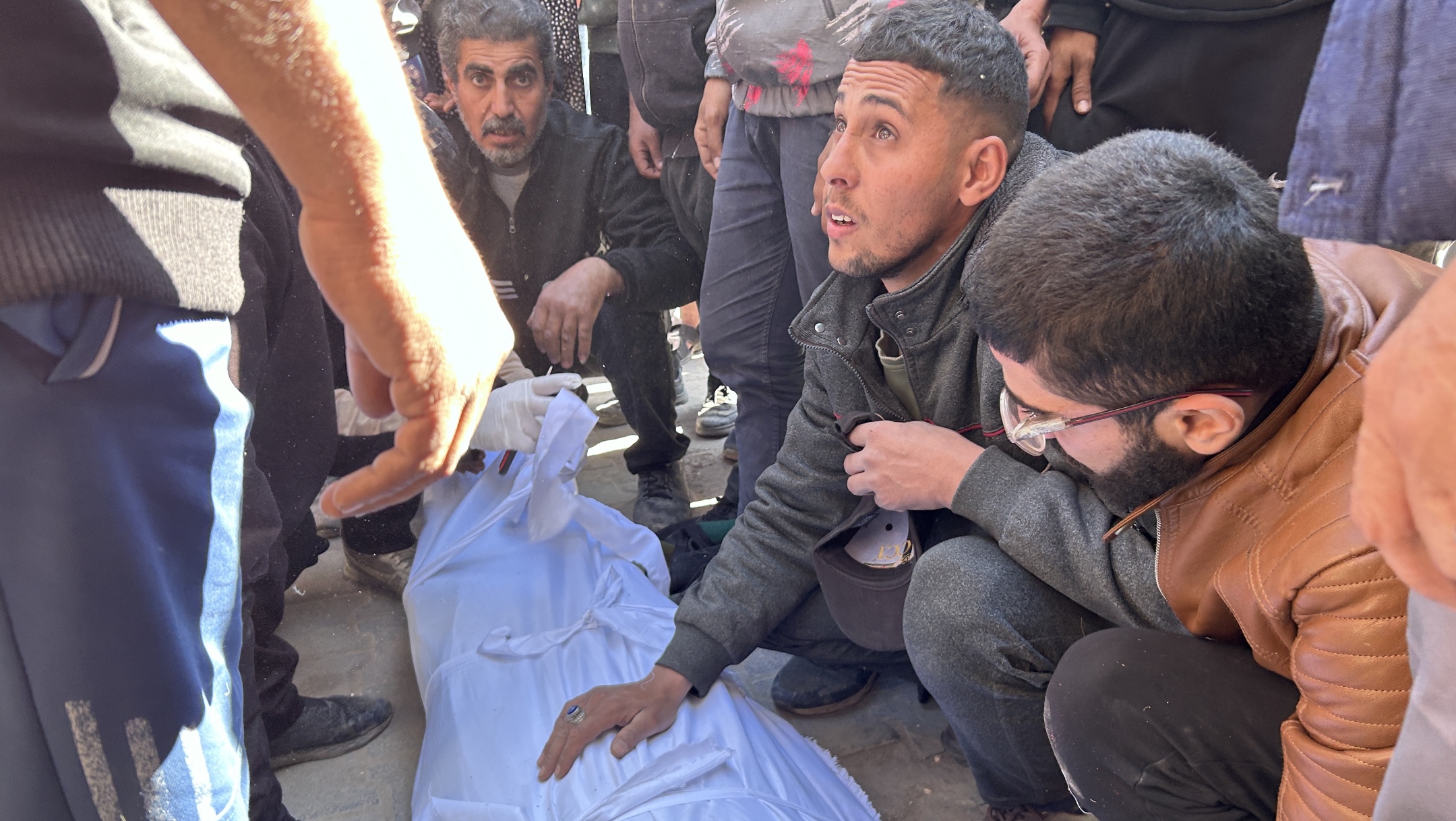US blocks UN Security Council resolution blaming Israel for dozens of deaths during humanitarian aid delivery
“We don’t have all the facts on the ground – that’s the problem,” said Robert Wood, the deputy U.S. ambassador to the UN

The funeral of Palestinians are brought from the Kamal Adwan hospital after Israeli forces opened fire on Palestinians waiting for humanitarian aid trucks at Al-Rashid Street in Gaza City, Gaza, Feb. 29, 2024. (Mahmud Isa/Anadolu via Getty Images)
(JTA) — The United States blocked consideration of a United Nations Security Council resolution blaming Israel for the dozens of deaths that occurred during the the delivery of humanitarian assistance in northern Gaza on Thursday, as world leaders stepped up their calls for a ceasefire.
The Associated Press reported that 14 of the 15 members of the Security Council favored approving the resolution, drafted by Algeria, but that the United States, one of five permanent members of the council with veto power, blocked it, seeking more information about the incident. The text of the draft resolution was not available.
“We don’t have all the facts on the ground – that’s the problem,” The AP quoted the deputy U.S. ambassador, Robert Wood, as saying.
Israeli officials said troops were escorting trucks delivering aid to Gaza City on Thursday when hundreds of Palestinians, who global health officials say are on the verge of a famine caused by the Israel-Hamas war, rushed toward the aid.
Hamas officials said that more than 100 Palestinians were killed in the ensuing melee, and blamed Israeli gunfire. Israeli officials say scant gunfire fired as warnings were responsible for 10 Palestinian casualties but said the vast majority of the deaths happened because of a chaotic stampede that they could not easily control.
The incident came as the Palestinian death toll topped 30,000 in the war launched when Hamas terrorists massacred approximately 1,200 Israelis on Oct. 7, and took more than 250 hostage. U.S. President Joe Biden and Middle Eastern countries are working to bring about a temporary ceasefire to free more than 130 hostages still held by Hamas in exchange for Palestinian security prisoners, and to facilitate the delivery of much needed relief to the strip.
World leaders stepped up their calls for a ceasefire in the wake of the mass deaths, with some blaming Israel for what happened.
“Deep indignation at the images coming from Gaza where civilians have been targeted by Israeli soldiers,” French President Emmanuel Macron, who had initially been strongly supportive of Israel in the war, said on social media. “I express my strongest condemnation of these shootings and call for truth, justice, and respect for international law.”
Deeply disturbed by images from Gaza,” Ursula von der Leyen, the European Commission president, said on social media. “Every effort must be made to investigate what happened and ensure transparency. Humanitarian aid is a lifeline for those in need and access to it must be ensured. We stand by civilians, urging their protection in line with international law.”
Even if Israel releases persuasive evidence that most of the deaths were the result of a stamped and not gunfire, the incident is likely to step up calls on Israel to allow in more efforts to secure Gaza Palestinians.
Israel has emphasized the chaos the soldiers faced, releasing drone footage of people rushing toward the food delivery.
Rear Adm. Daniel Hagary, the IDF spokesman, released an impassioned five-minute address in English arguing that the IDF troops were dedicated to the humanitarian aim of safely delivering the relief.
“The Israel Defense Forces operate according to the rules of engagement and the international law,” he said. “No IDF strike was conducted towards the aid convoy. I want to repeat that: No IDF strike was conducted towards the the aid convoy. On the contrary, the IDF was there conducting a humanitarian operation to secure the humanitarian corridor and allow the aid convoy to reach its designated distribution point so that the humanitarian aid could reach Gazan civilians in the north that are in need.”
This article originally appeared on JTA.org.
A message from our CEO & publisher Rachel Fishman Feddersen
I hope you appreciated this article. Before you go, I’d like to ask you to please support the Forward’s award-winning, nonprofit journalism during this critical time.
We’ve set a goal to raise $260,000 by December 31. That’s an ambitious goal, but one that will give us the resources we need to invest in the high quality news, opinion, analysis and cultural coverage that isn’t available anywhere else.
If you feel inspired to make an impact, now is the time to give something back. Join us as a member at your most generous level.
— Rachel Fishman Feddersen, Publisher and CEO